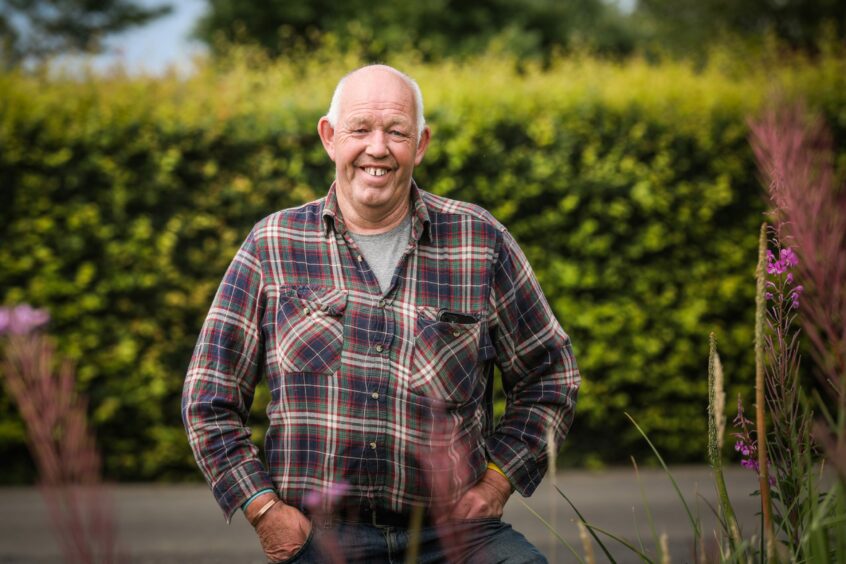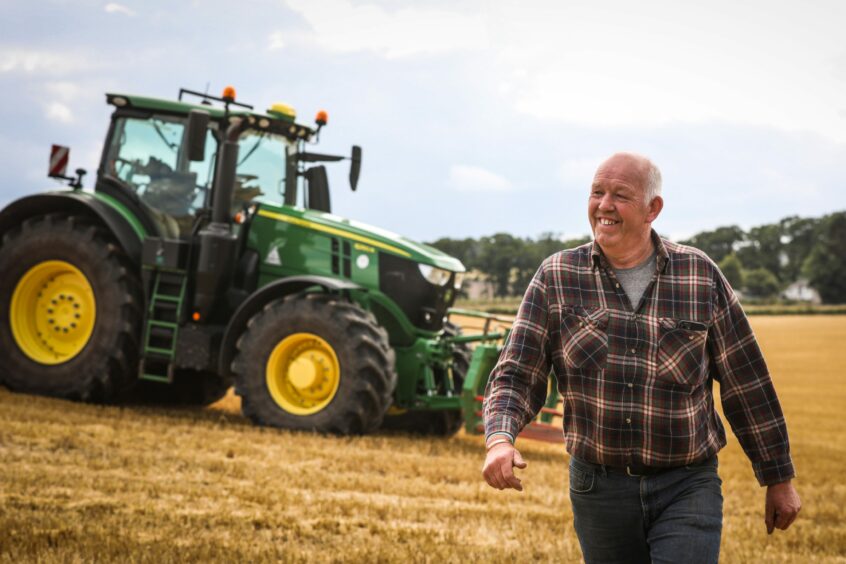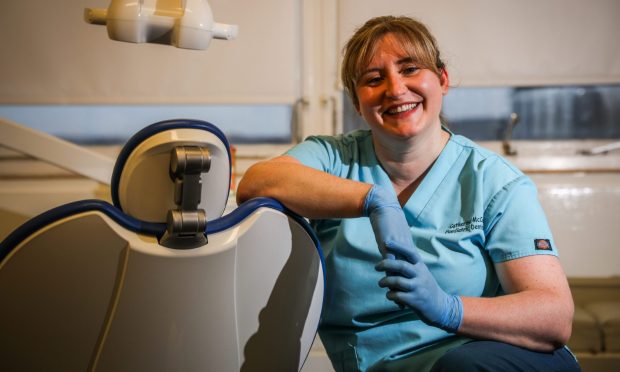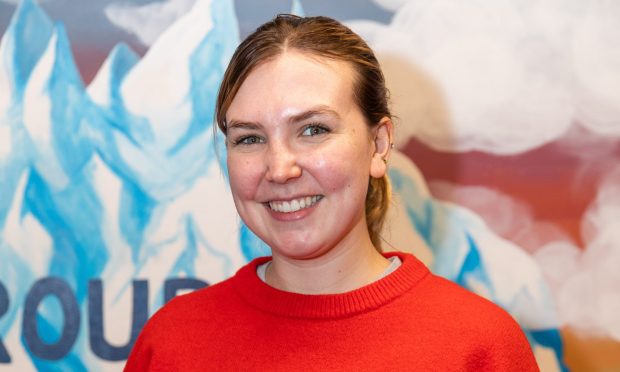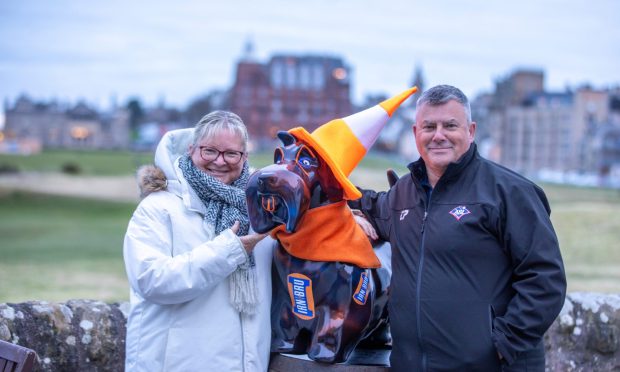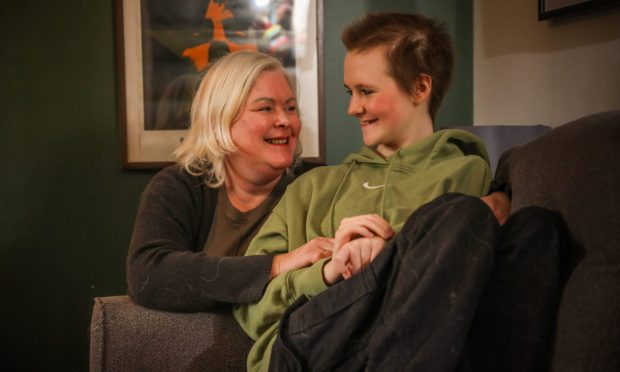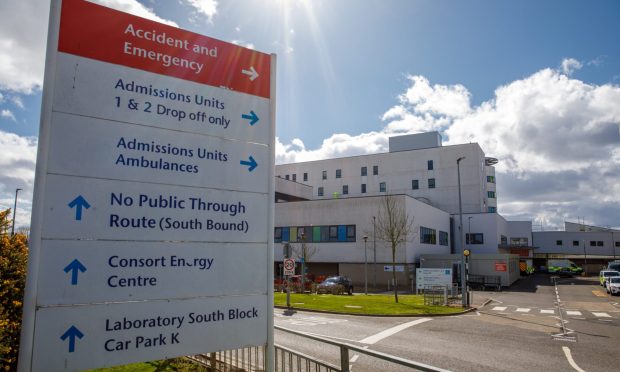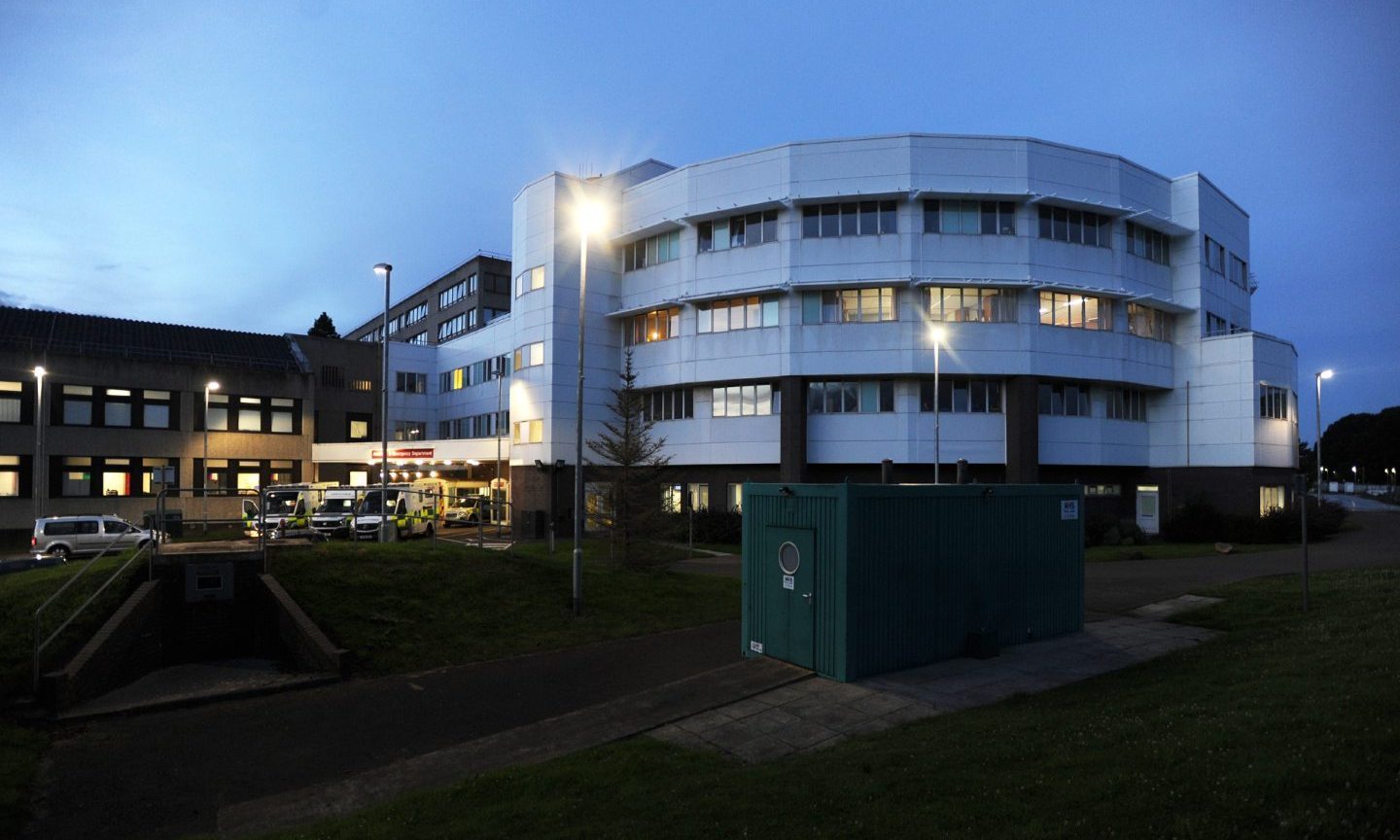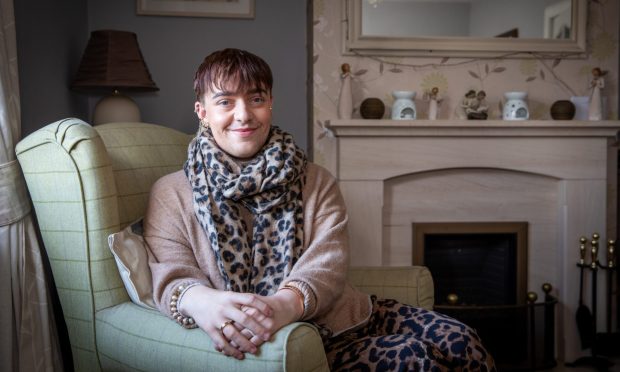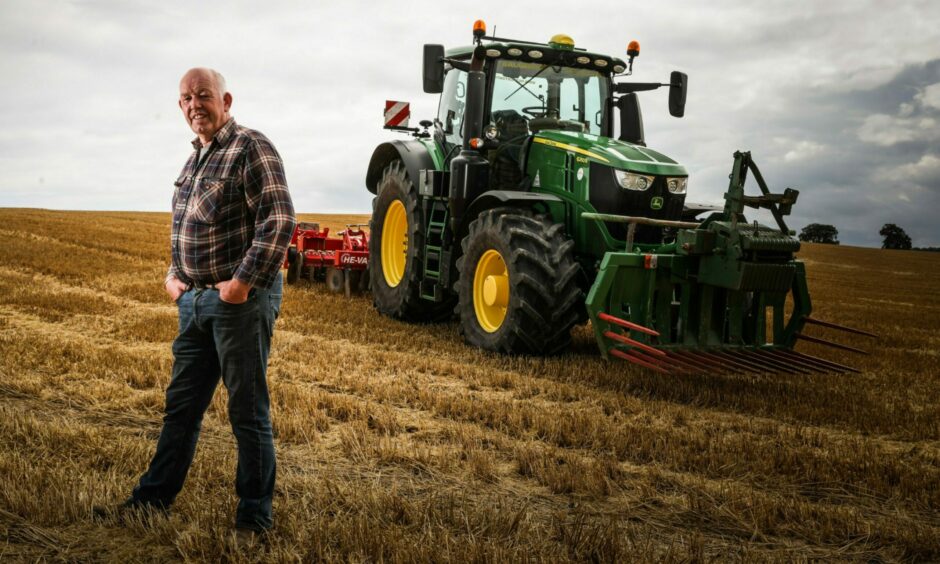
Bowel cancer survivors in Dundee and Perthshire have praised the bowel screening programme in Scotland for detecting the disease early following the death of BBC newsreader George Alagiah.
Gordon Douglas, from Coupar Angus, and Pete Orange, from Broughty Ferry, are both in their fifties and credit the Scottish Bowel Screening Programme for saving their lives.
Gordon revealed he dismissed the screening test when he was first eligible to have it when he turned 50.
“I felt completely fine. I had no symptoms whatsoever.
“But something told me I had better do it,” he explained.
“So two years later when I was offered it I decided to do it just in case.”
That decision proved to be life-changing for Gordon as the test results came back positive.
He had to do a re-test and went for more scans.
Gordon said: “I was diagnosed with bowel cancer in June 2016 after having a colonoscopy at Perth Royal Infirmary.
“I was shown where the cancer was in my bowel. It wasn’t very big.”
Gordon, who works as a potato and cereal farmer, said a few weeks later he underwent an operation to have the cancer removed.
“They were able to cut it all out without removing a large part of my bowel and it was stage two cancer,” he explained.
“And while they were able to remove it all, they said I should have what they called ‘clean-up chemo’.
“This was to make sure bits hadn’t spread and could grow elsewhere.”
Being given the all-clear from bowel cancer
Gordon had five rounds of chemotherapy at Ninewells Hospital in Dundee.
And every year afterwards, for the next five, he was given an ultrasound scan with check-ups and blood tests taken every six months.
Gordon, who is now 59, has also continued having the bowel screening test every two years.
There has been no return of the cancer.
Bowel screening proved to be a lifesaver
Speaking about the Scottish screening programme, Gordon said: “It definitely saved my life.
“I can’t understand why it is only available in Scotland to those over 50 and not everywhere in the UK.
“It is really important that everyone takes the test.
“It is scary to think what the outcome could be if people don’t.”
Gordon recommends others get screened if they are eligible.
He said: “I always say don’t be silly, take the test when it comes in.
“It is so much easier to do now than it used to be too.
“It is really simple, takes a couple of minutes and it could save your life.”
When was Pete diagnosed with bowel cancer?
Pete Orange had his bowel cancer detected by the Scottish bowel screening programme in 2010 when he was aged 56.
Pete, who lives in Broughty Ferry, had a cancerous polyp removed.
He said: “I must confess the screening started when I was 50 and I never bothered doing it.
“I didn’t think bowel cancer affected me because I had no symptoms whatsoever.
“But now I am an advocate of everyone doing the screening test.”
Pete said it was his wife who strongly suggested he use the kit.
“I decided to do it and they must have found something because they sent me another test to do.
“I was subsequently called in for a colonoscopy and they discovered a polyp in my bowel which they removed.
“It was sent away to be tested and it was found to be positive.”
Bowel cancer found at an early stage
Pete said a second polyp, which was non-cancerous, was also found.
At that time it was decided to leave it but four years ago it was removed at Perth Royal Infirmary – due to the high risk of it becoming cancerous at a later stage.
“In my case the cancer was found very, very early,” he said.
“I was fortunate the cancer was only in the head of the polyp.
“If I had gone another year or 18 months, I may well have had to get the operation to have part of my bowel taken out.
“Perhaps even chemotherapy.
“It’s a simple test to do, it takes you minutes to do it, it’s sent off and you get the result back very quickly. That’s your peace of mind for two years.”
‘Bowel cancer screening should be offered to everyone over 50’
Pete, 68, believes bowel test screening should be offered to everyone over the age of 50 in the UK, no matter where they live.
“I agree with George Alagiah that the test should be available to people in England over the age of 50, same as it is in Scotland.
“If it had, he might still be here.
“He was only a year younger than me so it probably all happened to him at a similar time to myself.
“I was tested, got the result and a solution that worked for me followed, whereas he didn’t have that opportunity.
“I was shocked when I had found out he had died.”
He added: “Anyone who has ever had a positive cancer diagnosis will all say get the screening test done and get it done as soon as you are able to.”
BBC newsreader George Alagiah
In Scotland men and women aged between 50 and 74 are offered free NHS bowel screening test kits every two years.
However, in England, the free kits are currently only sent to those aged 60 to 74.
The BBC newsreader George Alagiah, who passed away from bowel cancer earlier this week at the age of 67, supported a campaign by Bowel Cancer UK and Beating Bowel Cancer to make cancer screening available to everyone in England from the age of 50.
Previously he had said that had he been screened in his 50s, as is the case in Scotland, his cancer is likely to have been detected earlier which may have increased his chances of survival.
How many people in Scotland have bowel cancer?
According to statistics from Public Health Scotland, around 4,000 people in Scotland are diagnosed with bowel cancer every year.
In the UK as a whole, nearly 43,000 people are diagnosed every 12 months – this equates to nearly 120 people every day.
Chances of survival for at least five years with stage four bowel cancer are less than 10%, while for stage one it is nearly 100%.
But on a positive note, figures also reveal that bowel screening uptake in Scotland between May 2019- April 2021 was 65% – the highest in the programme’s history.
The statistics showed uptake for this period was greater in females (67%) than in males (63%).
Access to lifesaving tests
Genevieve Edwards, chief executive at Bowel Cancer UK, said: “We were deeply saddened to hear our supporter George Alagiah had died.
“Since he shared the news of his diagnosis, George used his powerful platform to encourage people to take part in bowel cancer screening.
“Bowel cancer is the second biggest cancer killer in Scotland.
“But it doesn’t have to be this way as it’s treatable and curable if diagnosed early.
“Quite simply, bowel cancer screening could save your life.
“We would encourage everyone to complete the test when they receive it.”
Expansion of bowel screening programme in England
A spokesman for NHS England said everyone aged 60 to 74 years who is registered with a GP and lives in England is automatically sent an NHS bowel cancer screening kit every two years.
He said the programme is expanding so that everyone aged 50 to 59 years will be eligible for screening. This is happening gradually over four years and started in April 2021 with 56 year olds.
The spokesman added that the programme has also started to include those aged 58.
